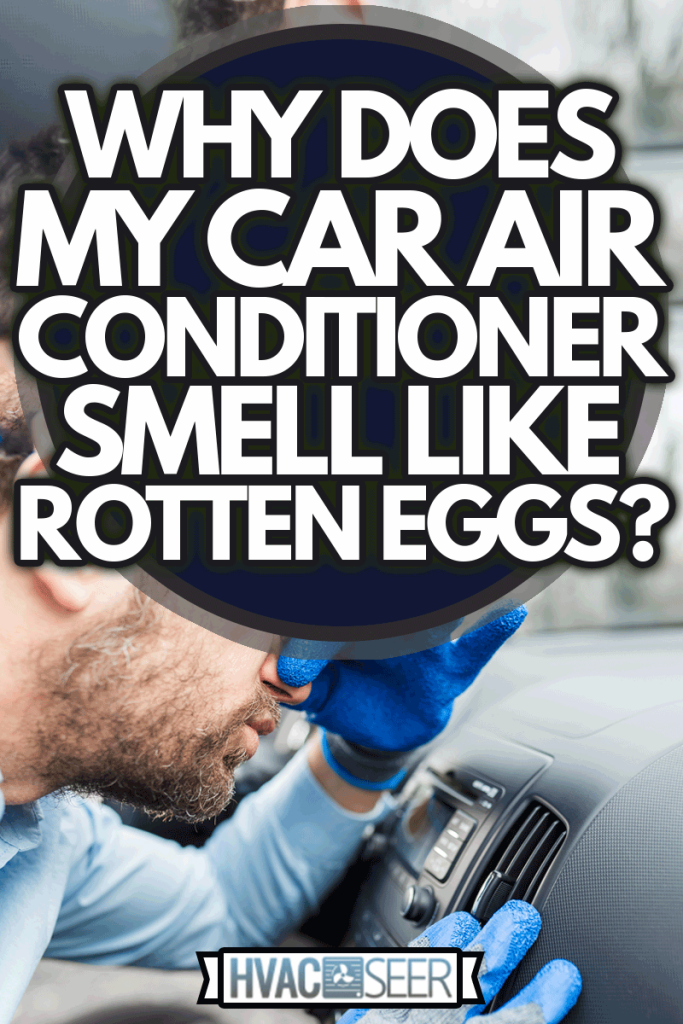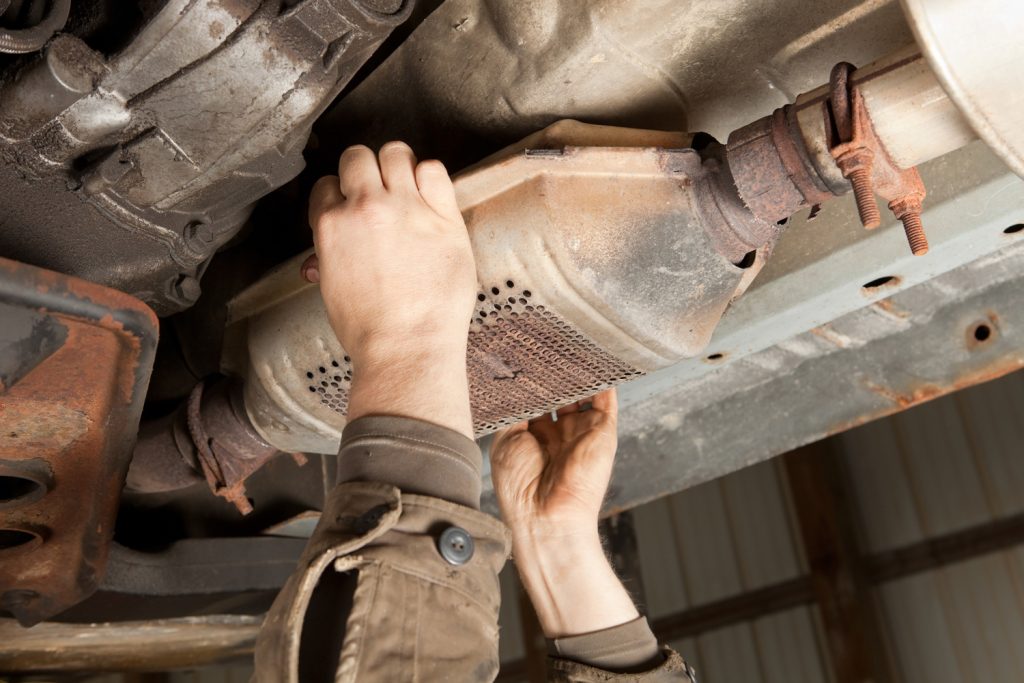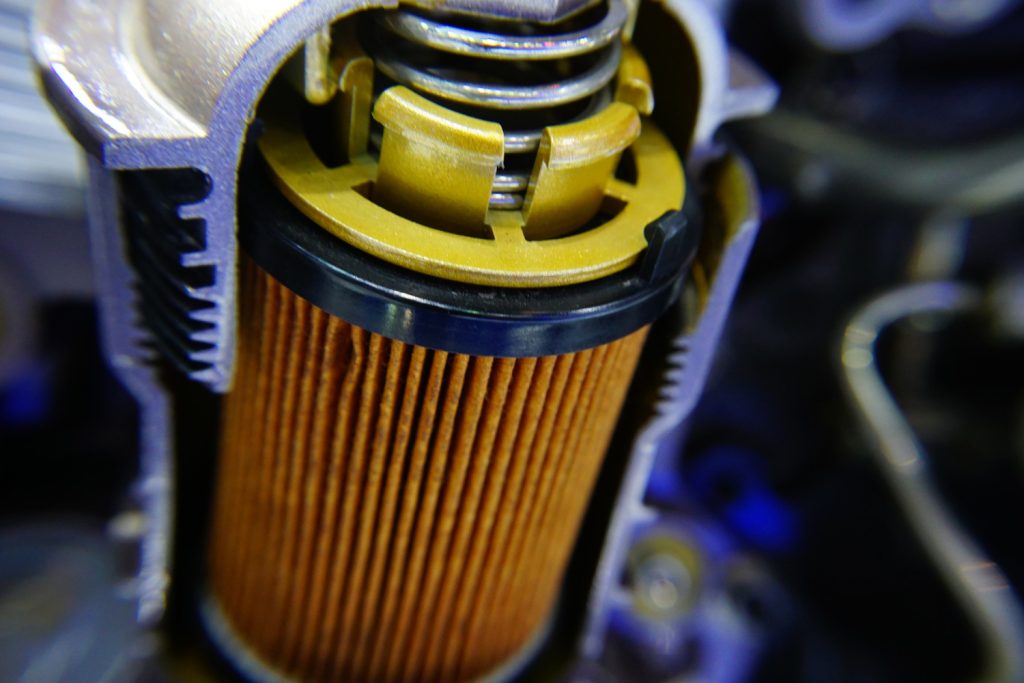If the scent of rotten eggs lingers in your car, check first if you forgot to take out the groceries in the back. If that's not the problem, the chances are high that there's something wrong with your vehicle. Don't worry, though, as we asked technicians where the rotten egg smell inside a car comes from.
When the scent of rotten eggs begins to linger in your car, this means that hydrogen sulfide is accumulating. The most common causes are as follows:
- Broken Catalytic Converter
- Failing Fuel Pressure Sensor
- Old Transmission Fluid
Professionals advise that you immediately call a mechanic in this situation.
In this article, we will further discuss where the rotten egg smell comes from and if it's safe to drive the car in that situation. Additionally, we will also talk about other bad smells that you need to worry about. Be sure to continue reading to find out more.

Why Does The Car Reek Of Rotten Eggs?
As mentioned earlier, if you didn't accidentally leave your groceries inside your car, chances are high that what you're smelling is hydrogen sulfide. And if that's what you're smelling, we suggest that you stop and step away from your car.
Normally, your car's emission systems convert hydrogen sulfide into gasses like sulfur dioxide before expelling them out through the exhaust. However, if one of those parts like the catalytic converter breaks down, then hydrogen sulfide would easily spread throughout the car via the air conditioner. When that happens, your life would be in danger.
Additionally, a broken catalytic converter is not the only cause for the rotten egg smell inside your car. We will discuss the other common causes of this pungent odor that you need to be aware of.
Common Causes Of Rotten Egg Smell
Most mechanics agree that when it comes to the pungent odor of rotten eggs inside a car, there are at least three things that immediately come to their minds. And in this section, we will discuss what these three causes are.
Broken Catalytic Converter
As we mentioned earlier, a catalytic converter's job is to convert and expel harmful gasses outside of your car. So any damage done to the converter would eventually cause it to become faulty and fail.
The catalytic converter is located underneath the car. From there, dirt and debris can damage the converter while driving. And without proper maintenance, it won't take long for it to wear down and break.
Additionally, when a converter accumulates too many gas byproducts, it's possible that it could catch on fire due to the hydrogen sulfide. When this happens, you should take your car to a maintenance shop to have the converter either fixed or replaced.

Faulty Fuel Pressure Sensor
The fuel pressure sensor is responsible for regulating the amount of fuel inside the car's engine. If the sensor this fails to do its job correctly, it can flood the converter with gasoline and oil. When that happens, it would clog the converter, making it unable to work properly.
The fuel filters that work in tandem with the pressure sensor can also cause this issue. Replace the worn-out fuel filter to avoid this.
Below, you can see where each of these devices is located. So when you start smelling the odor of rotten eggs, you can pop the hood and check if these two are the ones responsible.

Old Transmission Fluid
A car often exhibits the smell of rotten eggs when it has old transmission fluid running in its system. The reason is that it can leak out from its enclosed area, giving off that rotten smell when it stagnates.
Transmission fluid works by serving as a lubricant to the gear system inside your car, and it also acts as a coolant for the engine. Over time, it can deteriorate and start clumping up, forming debris which eventually leads to leakage.
If you own a manual car, it's imperative to change the transmission fluid every 30,000 to 60,000 miles. For automatic cars, the range would be higher, around 60,000 to 100,000 miles.
For cars that see heavy-duty use often, it's best to change the transmission fluid by half the suggested mileage to maintain optimal efficiency.
Check this transmission fluid on Amazon.
Is It Safe To Drive A Car That Smells Like Rotten Eggs?

The short answer is no. As much as possible, do not drive your car if the scent of rotten eggs is filling up the cabin. Not only does it cause you to inhale hydrogen sulfide into your body, but your car can catch on fire.
Hydrogen sulfide can lead to nausea, dizziness, headaches, insomnia, apnea, coma, and even death—not to mention the potential risks of possibly losing consciousness while on the road, thereby endangering others.
Once the pungent odor of rotten eggs hits your nose, we suggest that you stop and get out of your car as soon as possible. Then have it towed to the nearest auto shop so a mechanic can fix the issue.
What Other Smells Might Be Signs Of Car Trouble?
In this section, we will discuss what other smells serve as indicators to help you learn whether there's a problem with your car. Never take any of these smells lightly.
Gasoline Smell
If you just finished filling up your tank to the brim, you might have spilled some gasoline on yourself. Lower the windows of your car to help get rid of this odor. Give it an hour or so to disappear.
However, if the smell of gasoline lingers for longer than an hour, this might suggest that there's a leak in your fuel tank or injector. Head to the nearest auto shop to have this resolved immediately.
Exhaust Smell
The exhaust coming from a car is toxic to both people and animals. Consequently, you shouldn't breathe in large amounts of it. In a confined space like a car, breathing in exhaust fumes is extremely dangerous.
The exhaust smell may be getting into the car's cabin due to having poor seals. Another factor that you need to be aware of is that there might be a leak in your car's exhaust system.
Making sure that there are no openings from which the exhaust smell can enter is a start. You can either seal the windows and doors by yourself or have a professional do it for you.
Check this car sealant on Amazon.
Burning Rubber Smell
When the scent of burning rubber hits your nose and you're not at a race-car track, then it's highly likely that something has come loose under your car's hood.
The usual suspects are the car's rubber hose and belt. When they come loose, they often come into contact with the car's hot engine. This produces the burning rubber scent that you smell.
A fluid or oil leak can also produce the same burning rubber smell. Immediately head to an auto shop to have these issues resolved.
Other Burning Smells
If the burning scent that you smell is not the type due to rubber, there are other factors to consider. You might have blown a fuse or there could be faulty wiring that's causing the burning smell.
An overheating air conditioner compressor and worn-out brake pads can also produce a burning smell. These parts need replacing if that's the case.
But if you can't pinpoint where the smell is coming from or the scent of plastic burning is what you're identifying, call a professional. They would be able to tell you what exactly is wrong with your car and have the problem resolved for you.
Musty Smells
The smell of dirty socks would often indicate that molds and mildew are inhabiting your car's air conditioner. Due to the excess moisture that the air conditioner produces, this is a normal occurrence.
Breathing in this scent for long periods can jeopardize your health. Molds and mildew can trigger allergies and cause respiratory diseases like asthma to occur.
Prevent this from happening by regularly keeping the air conditioner's filters clean. Replace them if needed. Also, take your car to a service shop if the musty scent doesn't go away.
Final Words

Remember, when the scent of rotten eggs lingers inside your car, immediately call a professional. This is to prevent exposing you and other people to further danger. And be aware as well of other foul smells that come from your car.
If you enjoyed this article, consider checking the links below. These articles will discuss topics related to a car's air conditioner.


